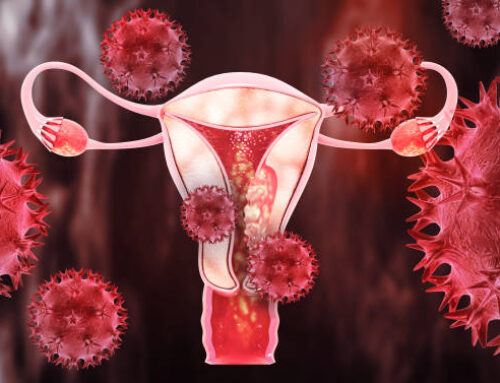If your energy levels are low, your concentration is poor, or you feel tingling in your hands and feet, you might want to look into a B12 deficiency. We all know what it’s like to feel run down and underperforming—but a deficiency in this essential vitamin could be the culprit.
In this article, we’ll explore all aspects of Vitamin B12—from its definition and benefits to signs of deficiency and ways to increase intake—so you can regain control over your health and performance.
Table of Contents
What Is Vitamin B12?
Vitamin B12, also known as cobalamin, is a water-soluble vitamin that plays a crucial role in many bodily processes. It is one of the eight B vitamins and is essential for the proper functioning of the nervous system, the formation of red blood cells, and DNA synthesis.
The human body does not produce vitamin B12, so it must be obtained from food sources or supplements. Foods rich in vitamin B12 include meat, fish, eggs, and dairy products. Some fortified cereals and plant-based milk alternatives are also sources of vitamin B12.
A deficiency in vitamin B12 can lead to a range of symptoms, including fatigue, weakness, numbness or tingling in the hands and feet, difficulty walking, and memory problems. It is important to maintain adequate vitamin B12 through a balanced diet or supplements to prevent deficiency and maintain overall health.
Signs and Symptoms of Vitamin B12 Deficiency
Vitamin B12 deficiency can have a wide range of symptoms that can affect different parts of the body. Some of the signs and symptoms of vitamin B12 deficiency include:
- Fatigue: Feeling tired or weak is one of the most common symptoms of vitamin B12 deficiency.
- Weakness and numbness in the hands and feet: Vitamin B12 deficiency can cause nerve damage, which can result in numbness or tingling in the hands and feet, as well as muscle weakness.
- Pale skin: Vitamin B12 deficiency can cause the skin to appear pale or yellowish.
- Shortness of breath: Low levels of vitamin B12 can cause a decrease in the number of red blood cells, which can result in shortness of breath.
- Dizziness and lightheadedness: Vitamin B12 deficiency can cause a drop in blood pressure, leading to dizziness or lightheadedness.
- Poor balance and coordination: Vitamin B12 deficiency can affect the nervous system, leading to difficulty with balance and coordination.
- Memory problems: Vitamin B12 deficiency can affect cognitive function, leading to memory problems or difficulty concentrating.
- Depression and mood changes: Low vitamin B12 can affect mood, leading to depression or other mood changes.
- Mouth ulcers: Vitamin B12 deficiency can cause tongue and mouth inflammation, resulting in painful mouth ulcers.
If you are experiencing any of these symptoms, it is important to talk to your healthcare provider to determine if you have a vitamin B12 deficiency and to discuss appropriate treatment options.
Causes of Vitamin B12 Deficiency:
There are several causes of vitamin B12 deficiency, including:
- Inadequate dietary intake: Vitamin B12 is found primarily in animal-based foods such as meat, fish, poultry, eggs, and dairy products. People who follow a strict vegetarian or vegan diet may not get enough vitamin B12.
- Malabsorption: Vitamin B12 requires adequate stomach acid and a protein called intrinsic factor to be absorbed by the body. Certain conditions that affect the digestive system, such as pernicious anemia, celiac disease, and Crohn’s disease, can interfere with the absorption of vitamin B12.
- Autoimmune disorders: In some cases, the body’s immune system can attack the cells that produce intrinsic factors, leading to pernicious anemia.
- Aging: As people age, the ability of the stomach to produce stomach acid and intrinsic factors may decrease, which can affect the absorption of vitamin B12.
- Medications: Certain medications, such as proton pump inhibitors and metformin, can interfere with the absorption of vitamin B12.
- Surgery: Some types of gastrointestinal surgery, such as weight loss, can affect the body’s ability to absorb vitamin B12.
- Parasitic infections: Certain parasites can interfere with the absorption of vitamin B12, particularly in developing countries where these infections are more common.
If you suspect that you may have a vitamin B12 deficiency, it is important to talk to your healthcare provider to determine the underlying cause and to discuss appropriate treatment options.
Diagnosis and Treatment of Vitamin B12 Deficiency:
Diagnosis of vitamin B12 deficiency typically involves a physical exam, a review of medical history, and blood tests to measure the levels of vitamin B12 and other related markers. In some cases, additional tests such as a bone marrow biopsy or an endoscopy may be necessary to determine the underlying cause of the deficiency.
Treatment of vitamin B12 deficiency usually involves supplementation with vitamin B12. The form of supplementation may vary depending on the severity and underlying cause of the deficiency. For mild deficiencies due to inadequate dietary intake, oral supplementation with vitamin B12 tablets or capsules may be sufficient. For more severe deficiencies due to malabsorption or other underlying conditions, injections of vitamin B12 may be necessary.
If the underlying cause of the deficiency is related to a digestive disorder or other medical condition, treatment of the underlying condition may also be necessary to improve vitamin B12 absorption and prevent future deficiencies.
In addition to supplementation, it may also be necessary to make dietary changes to ensure adequate intake of vitamin B12-rich foods. This may include adding more animal-based foods to the diet, or for vegetarians or vegans, consuming fortified foods, or taking supplements that contain vitamin B12.
It is important to work closely with a healthcare provider to determine the appropriate diagnosis and treatment plan for vitamin B12 deficiency, as untreated deficiencies can lead to serious complications over time.
Conclusion
In conclusion, knowing more about Vitamin B12 can be a powerful tool in helping you take charge of your health. It will help if you become informed on not only the symptoms of Vitamin B12 deficiency but also its causes and treatments.
We’ve discussed the importance of Vitamin B12 in several areas, and it’s clear that it plays a vital role in keeping our bodies functioning properly. Don’t let deficiency take over—make Vitamin B12 your ally in achieving optimal health and well-being.
Mobile: 9028801188, 9028566644, 9028566611







